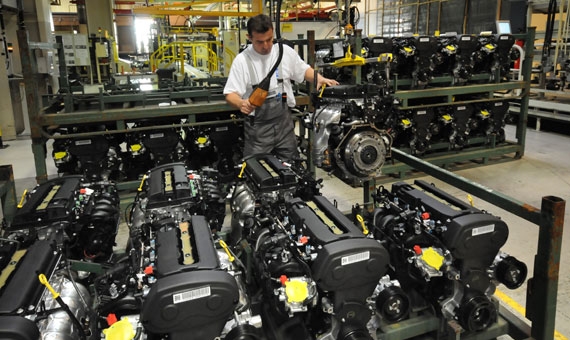In the early 1990s, market based privatization was the main incentive for foreign investment in Hungary. With privatization virtually complete, Hungary’s main focus in attracting FDI has increasingly shifted to products and services incorporating high value added elements. That is the case with the American investors as well.
Currently, there are 800 partially owned and 128 wholly owned US companies operating in Hungary, employing more than 90,000 people. American companies have invested 9 billion dollars in Hungary (EUR 7.9bn) so far.
The U.S. Commercial Service in Budapest says in its latest edition of the 'Doing Business in Hungary' guide that dispite the many challenges that accompany the local business environment, Hungary remains an attractive market for U.S. investment and exports. Hungary’s strategic location in Europe, easy access to both EU and non-EU markets within and outside the Schengen zone, highly skilled and educated work-force, and sound infrastructure have led global companies and many others to locate manufacturing and service facilities here.
The Commercial Service did not mention the political upheaval over the corruption, procurement procedures and tax issues which has caused tension between US and Hungary. However a growing number of American companies
complain about these hurdles in their business activities and say that the government does not seem to listen to their complaints.
Despite all the "collisions" over the last year, Minister of Foreign Affairs and Trade Péter Szijjártó has remained optimistic. He said in a recent forum that this huge investment volume shows that economic relations between Hungary and the US “continue to be a success story”, and expressed hopes that political relations between the two countries would soon become just as smooth as economic ties.
Optimism may be built on the previous decades which brought a much balanced inflow of American investments and was characterized with a more pragmatic approach from Hungarian governmental officials when it came to improving the business climate. Manufacturers were leading the list of investors but companies in the service sector followed suit over the last 8-10 years.
Sector |
Company |
|
Automotives |
General Motors, Lear Corporation, Visteon, Ford, Zoltek, PACCAR |
|
Electronics |
IBM, Jabil Circuit, National Instruments, Emerson, EDS |
|
IT-Telcom |
HP, Cisco, Microsoft, Oracle, Sykes |
|
FMCG |
McDonald's, Burger King, Johnson&Johnson, Coca-Cola, Pepsi Co, Sara Lee, Procter&Gamble |
|
Industrial |
General Electric, Guardian Industries, Alcoa, Celanese, Exxon Mobil, Monsanto, Dow Chemical |
|
Financial |
Citibank, GE |
|
Other |
Emmis International, O-l (Owens Illinois), Pfizer, Lilly |


Leave a Reply Cancel reply
Top 5 Articles
 MVM Buys Huge Solar Power Plant in Tázlár December 20, 2023
MVM Buys Huge Solar Power Plant in Tázlár December 20, 2023  Tensions Escalate Between U.S. and Hungary after… March 15, 2024
Tensions Escalate Between U.S. and Hungary after… March 15, 2024  Hungarian Central Bank Head Warns of Autonomy Under Threat March 1, 2024
Hungarian Central Bank Head Warns of Autonomy Under Threat March 1, 2024  Alpine Comfort at a Mountain Lake December 19, 2023
Alpine Comfort at a Mountain Lake December 19, 2023  Hungary Faces Economic Headwinds as Recovery Falters February 16, 2024
Hungary Faces Economic Headwinds as Recovery Falters February 16, 2024








No comment yet. Be the first!